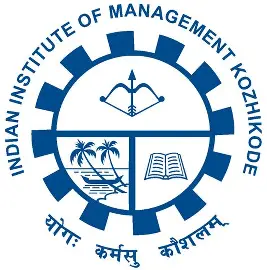In the ever-evolving world of business, professionals often seek advanced degrees to enhance their skills and open up new career opportunities. Dual degree programs offer a unique opportunity to acquire expertise in multiple areas, providing a competitive edge in the job market.
This blog will explore two popular dual degree options in the United States: the Doctorate of Business Administration (DBA) and the Master of Business Administration (MBA). We’ll delve into these programs’ key differences and similarities, helping professionals make informed decisions.
Dual Degree DBA & MBA
While both the DBA and MBA are prestigious degrees in the field of business, they serve different purposes and cater to distinct career aspirations. Let’s compare them in terms of program focus, duration, curriculum, and career outcomes:
Program Focus
- MBA: The MBA program focuses on developing a broad understanding of various business disciplines such as finance, marketing, operations, and strategy. It equips students with managerial skills to lead and make strategic decisions in diverse industries.
- DBA: The DBA program emphasizes applied research and advanced knowledge in business administration. It is designed for experienced professionals seeking to contribute to business through research, consulting, or teaching. The DBA program focuses on generating practical solutions to real-world business challenges.
Duration
- MBA: Most MBA programs require full-time study for two years, although some part-time and accelerated options are available.
- DBA: The DBA program typically takes longer to complete than an MBA. It can range from three to six years, considering the research-intensive nature of the program.
Curriculum
- MBA: MBA curricula typically include core courses covering foundational business areas, followed by elective courses that allow students to specialize in specific fields of interest. Common MBA concentrations include finance, marketing, entrepreneurship, and operations.
- DBA: DBA programs usually consist of advanced coursework in research methods, theory development, and specialized areas within business administration. Students also engage in independent research, culminating in a doctoral dissertation.
Career Outcomes
- MBA: An MBA degree equips graduates with a versatile skill set that opens doors to a wide range of career opportunities. Graduates often pursue roles in consulting, finance, marketing, operations, and general management. The MBA is valued for its practical orientation and is particularly beneficial for professionals aiming for executive-level positions.
- DBA: A DBA degree is well-suited for individuals seeking advanced research and teaching roles. Graduates often become consultants, industry experts, or faculty members in business schools. The DBA enhances critical thinking, research skills, and expertise in a specialized area, enabling professionals to contribute to the academic and corporate realms.

DBA and MBA Comparison
Admission Criteria
- MBA: Most MBA programs require a bachelor’s degree, work experience (typically 2-5 years), and standardized test scores (GMAT or GRE).
- DBA: DBA programs generally require a master’s degree, significant work experience (usually 5-10 years), letters of recommendation, and a strong research proposal.
Cost
- MBA: MBA programs tend to be expensive, with tuition costs varying across institutions. Scholarships and financial aid options are available, but students should carefully consider the return on investment.
- DBA: DBA programs are typically funded or supported through employer sponsorship, fellowships, or research assistantships. However, it’s essential to research individual programs to understand the financial implications.
Networking Opportunities
- MBA: MBA programs offer extensive networking opportunities through interactions with peers, alumni, and industry professionals. Students collaborate on team projects, participate in networking events, and join business clubs and organizations.
- DBA: DBA programs also provide networking opportunities, but the focus is more on building connections with faculty members and industry experts. Students may engage in research collaborations, attend conferences, and publish scholarly articles, expanding their professional network within academia and consulting circles.
Research Emphasis
- MBA: While MBA programs may include research projects, the emphasis is primarily on the practical application of business concepts rather than in-depth research.
- DBA: DBA programs strongly emphasize research, with students undertaking original research projects and contributing to the existing body of knowledge in their field of specialization.
Conclusion
In dual degree programs, the DBA and MBA offer unique advantages and cater to different career goals. The MBA equips professionals with a versatile skill set and practical knowledge, while the DBA focuses on advanced research and specialized expertise. As professionals looking to upskill, assessing your career aspirations, research interests, and personal circumstances is crucial when choosing between these programs.
Consider factors such as program focus, duration, curriculum, career outcomes, admission criteria, cost, networking opportunities, and research emphasis to make an informed decision that aligns with your long-term goals. Regardless of your path, the DBA and MBA can significantly enhance your knowledge and open doors to exciting opportunities in the dynamic business world.
































